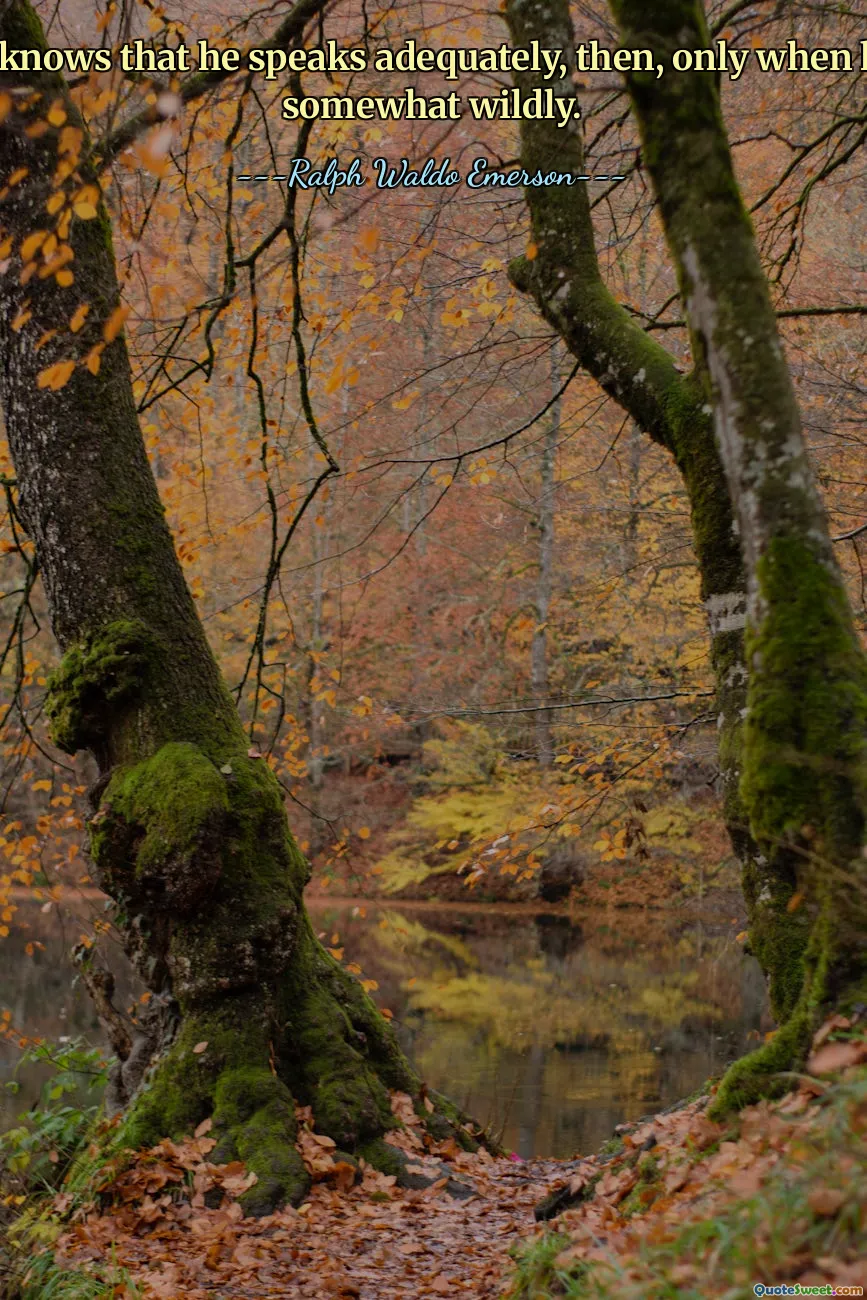
The poet knows that he speaks adequately, then, only when he speaks somewhat wildly.
---Ralph Waldo Emerson---
This quote highlights the essence of authentic creative expression. Often, human communication tends to gravitate toward clarity and precision, but Emerson suggests that true artistic or poetic truth arises when one ventures beyond the confines of strict correctness and ventures into a more passionate, instinctive, and unrestrained realm. It is in the ‘wildness’—the raw, unfiltered, and tumultuous expressions—that deeper truths and insights reveal themselves. This resonates with the idea that genuine art and authentic communication often stem from an emotional or intuitive core that cannot be fully captured by rigid, logical articulation.
When a poet—or any artist—allows themselves to be slightly imperfect, unpolished, or even chaotic in their expression, they open a window to more genuine understanding. Such wildness embodies vulnerability, spontaneity, and the subconscious mind's deeper layers, which are crucial in bridging the gap between superficial communication and profound insight. Emerson's perspective encourages artists, writers, and thinkers to embrace their imperfections and intuitive impulses, viewing them not as flaws but as vital channels to connect more deeply with their audience and with their own inner truths.
Moreover, this quote can serve as a reminder for anyone engaged in meaningful dialogue or introspection: that sometimes, the most authentic expressions are those that break away from convention, allowing for a more sincere and impactful message. It invites us all to recognize the beauty in imperfection, to cherish the unruly thoughts that spring forth unfiltered, and to trust that true expression transcends mere precision, reaching into the wild realms of the soul.
In essence, Emerson advocates that the path to genuine articulation voyaging into wild territories ensures that the speaker captures the full breadth and depth of their inner vision, making their words more alive, truthful, and resonant.











